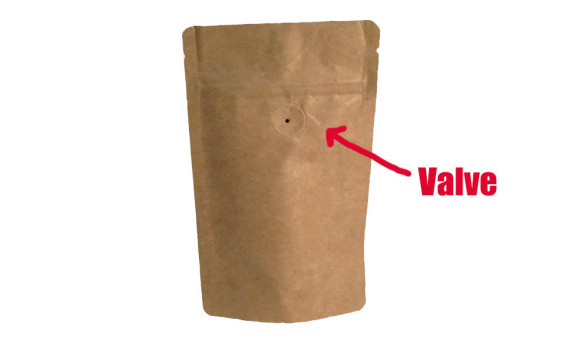
In a perfect world, your kitchen would be equipped with a personal barista. Every morning, at the sound of your alarm, he or she would begin grinding freshly roasted coffee beans and brew you the very best, most perfect cup of coffee.
This is not the world in which we live. Our world has fewer in-house baristas and more coffee-stained blouses from failed attempts at carrying a flimsy to-go cup and a laptop bag on a torturously packed subway car. But there's a light at the end of this coffee-stained tunnel: Store-bought coffee beans can result in tasty, energizing coffee (something no world should be without).
Katie Carguilo, the 2012 US Barista Champion and the leader of Counter Culture Coffee's West Coast Quality Control department, spoke with The Huffington Post about the best practices to ensure a quality, home-brewed cup from a bag. Abide by these Six Bagged Bean Commandments and your mornings may very well feel perfect.
Buy whole beans.
When presented with the option of whole or ground bagged beans, always select whole. Carguilo says grinding your beans at home, right before you brew, is always going to result in a more flavorful coffee experience. Pre-ground coffee will offer a flatter, duller cup. "Roasted coffee smells a certain way, and grinding it releases the aromatic contents that are in the beans," she says. "If you grind right before you brew, you'll be able to brew those scents into the water."
If you don't own a grinder, you still don't have to submit to buying ground beans. Carguilo says to purchase the whole beans and grind them in-store. Most grocery stores and coffee distributors have a grinder for customers to use. In this case, you'll at least know when the beans were ground, and won't risk buying beans that were ground weeks or months earlier.
Don't feel shame if pre-ground coffee beans are all that's available in a time of crisis. "I wouldn't buy ground coffee, just like I wouldn't buy instant mashed potatoes," Carguilo says. "But it's a means to an end -- if you don't have a grinder, having ground coffee is a life saver." Amen.
Buy a bag with a valve.
Carguilo says coffee beans are typically sold in two types of bags: The heat-sealed bags equipped with a small valve, and the simpler, lined paper bag. The valve works as a one-way airway for the gas that the beans emit, while preventing air from entering. Dry beans are a key to freshness, so coffee kept in a bag with a valve will stay fresh a lot longer than the alternative.

Amazon
If your preferred beans don't come in this type of bag, you've got a few options. You can purchase your beans in smaller quantities, so you'll have better-tasting coffee in your day-to-day experience. You could also invest in a heat sealer of your own. This is a good, environmentally-sound option for anyone who buys their beans from a bulk bin.
Close the bag between brewings.
This one's kind of a given, but the better stored your coffee beans are, the more exceptional your coffee will taste. Always close the bag of beans when you're done using it, and store it in a cool, dry place -- like the countertop or pantry, Carguilo says.
Remember, moisture is the enemy of coffee beans. If you like to store unopened bags (never unsealed bags) in the freezer, you'll need to put it inside another bag to keep it safe. "The bag needs to be sealed properly so it's not getting freezer burned and the beans aren't interacting with any moisture," Carguilo says. She doesn't believe that freezing coffee dramatically extends coffee's shelf life, and it might not be worth the extra effort.
Look for a roasting date.
When a company prints the date the beans were roasted, Carguilo says they're providing "total transparency." Most coffee brands will provide a sell-by or expiration date, but these numbers are vague because there's no way to tell how a company gauges freshness. Coffee doesn't really go bad, Carguilo says, it just loses its flavor. When you know the roasting date, you'll be able to judge the freshness for yourself. Purchase the bag with the most recent roasting date for more superior coffee.
Choose light roasted coffee for a more dependable taste.
The difference isn't severe, so if you prefer the flavor of a bold, dark roasted coffee, by all means, purchase it. But if freshness is your main concern (say, you're stuck in a snow storm and won't be able to get to the store for a while), go with light. Carguilo says this type tends to taste a little bit fresher for a longer period of time because the roasting process causes the cell walls of the beans to break down, allowing aroma and gasses to escape more easily. Light roasted beans are more secure in a sense.
Boil water before putting it in the coffee maker for the best cup possible.
Even with those cheap, plastic coffee makers, hot water can make a world of a difference in your coffee drinking experience. Carguilo suggests boiling the water for your coffee machine before you add it to brew. The machine may not be powerful enough to sufficiently raise the temperature of cold sink water, but it is hot water that allows all of the flavors in your coffee to brew.
